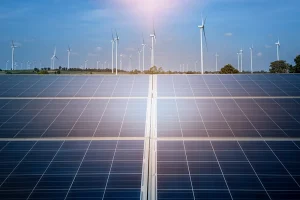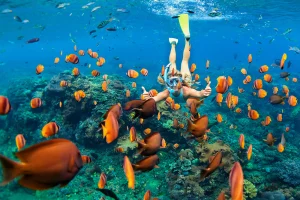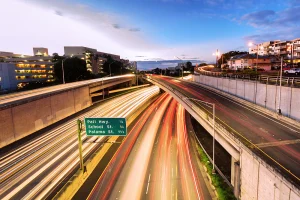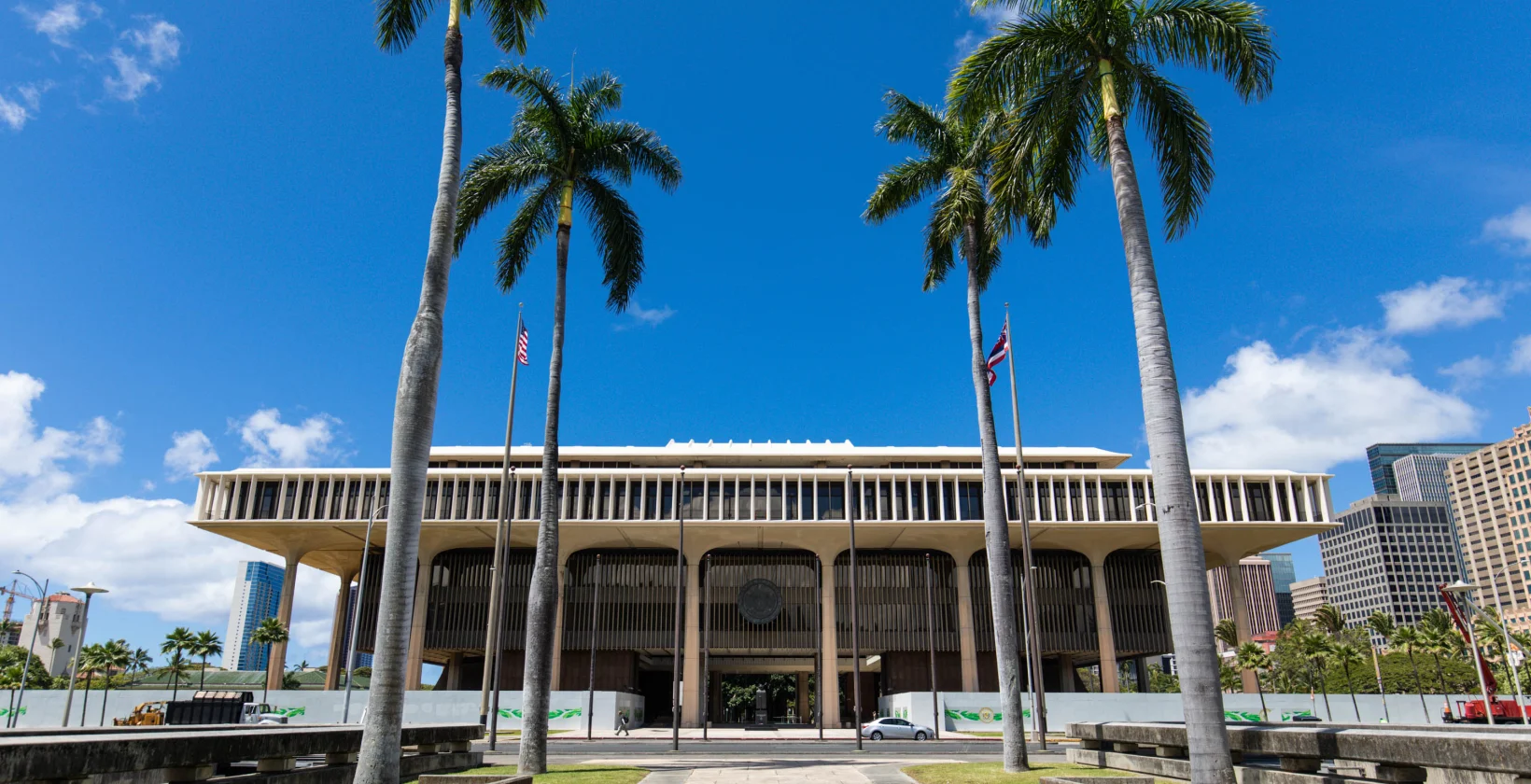The 2025 Hawai‘i legislative session has come to a close! Over the last year, Blue Planet Foundation’s policy team worked hard at the Capitol and in our communities pushing for impactful and durable legislation that will set the course for Hawaiʻi’s collective climate future.
Last year, Blue Planet’s Policy Priorities focused on increasing affordability through energy efficiency, reducing carbon emissions from transportation, and centering equity in our work to address climate change. We’re pleased to share that thanks to your advocacy efforts, we successfully passed clean lighting and appliance efficiency standards — two of Blue Planet’s top priorities relating to energy efficiency — along with other climate-related bills that are now on the Governor’s desk.
Bills That Passed:
- SB 589: Distributed solar goal and retail wheeling (intent to veto)
Requires the PUC to establish an installation goal for distributed energy resources and to establish tariffs to achieve the installation goal and for grid services programs, microgrids, and community-based renewable energy; ensures that certain levels of compensation are provided for solar and energy storage exports from distributed energy resources; authorizes wheeling of renewable energy and requires the PUC to establish policies and procedures to implement wheeling and microgrid service tariffs.

- HB 796: Renewable tax credit repeal (intent to veto)
Sets a five-year sunset for Hawai‘i’s renewable energy state tax credits. - SB 897: Utility wildfire liability cap and securitization to fund infrastructure upgrades (pending gov)
Adopts rules to determine an aggregate limit for electric utility liability for economic damages from a covered catastrophic wildfire; authorizes securitization to help fund infrastructure upgrades and other costs. - HB 1051: Energy Efficiency Standards update (pending Gov)
Extends the state energy-efficiency portfolio standards from 2030 to 2045 (setting a goal of six terawatt hours of electricity use reductions) and updates the standards. - SB 1220: Renewable gas tariff (Act 192)
Requires gas utility companies to submit proposed renewable gas tariffs to the PUC. - SB 1396: Climate impact fee (Act 96)
Increases the existing hotel tax (TAT) by 0.75%, with funding to be used for building climate resilience, protect natural resources, and mitigate the impacts of tourists on the environment.

- SB 1501: Financial backstop for large renewable projects (Act 191)
Allows the State to enter into “step-in” agreements for payment obligations arising under certain power purchase agreements; establishes the Power Purchasing Costs Trust Fund.
Bills for Next Year
Given the high climate impact of Hawai‘i’s transportation sector (the largest source of the islands’ carbon emissions), efforts to electrify and provide low-carbon fuels for cars, trucks, and aircraft will be critical during the 2026 legislative session. Given the historic settlement of the Navahine youth climate suit, there will be even greater focus on these efforts during next year’s session. (Bills introduced in the 2025 legislative session are still alive for consideration during the 2026 session.)

- HB 346: EV charging rebates for affordable housing
This bill would provide rebates for the installation of eligible electric vehicle-ready parking stalls for new construction of affordable housing. This equity bill is critical to ensure that everyone can participate in our low-cost, low-carbon future and not be stuck a gas guzzling car or truck because they have no place to charge. - SB 1120: Clean Fuels Standard (stuck in conference committee)
This measure establishes a clean fuel standard by 2028. The bill as drafted reduces the average carbon intensity for alternative fuels by at least ten per cent below 2019 levels by 2035 and at least fifty per cent below 2019 levels by 2045 (it exempts aviation fuels, but they could opt-in). This market-based approach will ensure that dollars flow to the most affordable solutions first. If a supplier of fuel (say a gas station chain) can’t decarbonize their product, they will have to help pay for projects that will provide an overall reduction in emissions (such as public EV charging infrastructure). The allowable carbon intensity continues to ratchet lower over time, providing market certainty for new clean transportation investments. - HB 1459: Sustainable aviation fuel mandate for interisland
This policy requires that commercial airlines operating interisland flights in Hawai‘i utilize at least 10% sustainable aviation fuel (SAF) in intrastate airline flights beginning in 2030 and use an increasing percentage thereafter. A similar policy currently exists in Europe. This will help create a market for producing SAF and will help ensure that the costs borne for sustainable fuel are borne by users (passengers who fly the most)—not the general public.
Thank You!
Thank you to all the lawmakers who fought hard for these bills — both the ones that passed and the ones for which the fight will continue next year. And thanks also to everyone in the community who submitted written testimony, testified in-person, and wrote letters to the editor in support of these important measures. You made this happen for our community and our planet!
And your combined efforts help contribute to advancing Hawaii’s transition to 100% renewable energy and being a leading light in the world for a transition away from fossil fuels.
